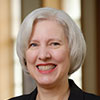This article is more than 5 years old.
Lauren C’s top three from ALA: 1) everyone is still figuring out how to deal with the issues surrounding e-books 2) but editors want to hear about how patrons are using e-books instead of libraries solving the problems with them 3) and librarians (public and academic) are still talking about budget woes, but instead of eye-popping cuts, the talk this year is about sustaining collections and services with permanently smaller budgets. That’s my highest level view.
Here’s a little more detail, or the mid-level view:
In two different sessions I heard about experimentation with large-scale collaborative purchasing of e-books. In one meeting, our own ASERL initiative was one of the experiments discussed. We have a negotiated pricing model based on when multiple libraries purchase the same title in an ad hoc manner, so it is a little different from several others. No one (among librarians, publishers, aggregators) seems entirely satisfied at this point. I also heard about platform proliferation and the negative impact on the “user experience,” something Carol and I have been concerned about for years now. We’d all like for e-books to “just work” the same way that e-journals on different platforms “just work.”
Chris posted earlier in his NASIG report about a trend towards meeting user needs now, which matched things I heard in a session called “Transforming Collections.” Public library, small college library, and large ARL library perspectives were each represented. The overall message was to make decisions based on what is closest to home.
Here are other detailed snippets from that session that I found interesting:
Jamie Larue, Director, Douglas County Libraries in speaking about e-books:
- The user experience is getting sacrificed to platform proliferation.
- His library is not buying anymore e-books if their terms are not met. (LEC local note : One-user-at-a-time was disastrous last semester here with an assigned reading when many students were trying to do it simultaneously! At the June Admin Council we agreed to suppress NetLibrary e-books from the catalog.)
- Need the EPUB standard to be used (LEC comment: a standard that Kindle doesn’t handle, but there are workarounds)
Bob Kieft, College Librarian at Occidental College:
- He gave a shoutout to Emily Stambaugh amongst others as influencing his views on collection development.
- Differences between small colleges and big universities but institutions are similar within their category.
- No core curriculum anymore really and thus no core collection.
- Colleges are slower to change (than universities).
- Students clinging to print first. Librarians at colleges will store all they can as long as they can while awaiting culture change. Harder to remove old books than to fail to buy new ones. Users see the library as an archive/research collection.
- Won’t mass digitize. Will sign onto Google Books when legal questions resolved. Also Hathi Trust.
- Resource sharing is high. Purchasing decisions are based on the holdings of other libraries, without formal arrangements.
- For students, collections is just _part_ of the purpose of the library — the library is there to help them succeed.
Bob Wolven, AUL, Columbia University:
- Format obsolescence (VHS, LP, etc.) Replace some, forget some. Is PDF next? Science community uses hyperlinked text.
- E -archives (e -versions of personal papers).
- If everything were available on the web for free, then what would we collect? Who is responsible for open access collecting? Scale of collecting is immense. Right now only
15-20% of e-journal titles are being preserved. How we collect commercially published electronic content is different because we’re not in control when we don’t own it. Archiving the web? If it is free people do not want to support it (like classic game theory).- Ultimately have to base actions on academic mission.
Here are just a few of the tips on writing offered by Faye Chadwell, Donald and Delpha Campbell University Librarian and OSU Press Director, Oregon State University) and by Lisa German, Dean for Collections, Information and Access Services, The Pennsylvania State University Libraries:
- Remember to check author guidelines
- Lit review is important to set context
- Push back on copyright contract (easier if not on promotion/tenure track)
- Must carve out weekly couple of hours for writing. Has to be sacred. (LEC: I think this has to be the hardest of these!)
I have more detailed notes on e-books, and I can elaborate more (over coffee?) if your interest is piqued!

2 Comments on ‘Lauren C. at ALA Annual 2012, Anaheim’
Interesting insights into ebooks and the nervous expansion of that platform. I agree that until the user experience issues settle out, it won’t become the “norm.” (And good luck with carving out time to write!)
I think the only way to carve out writing time is to set a specific time and make it take place at a location away from your office. It’s easy enough to be distracted (what with the Internet at your fingertips) without having the interruptions that are a part of our daily office lives.